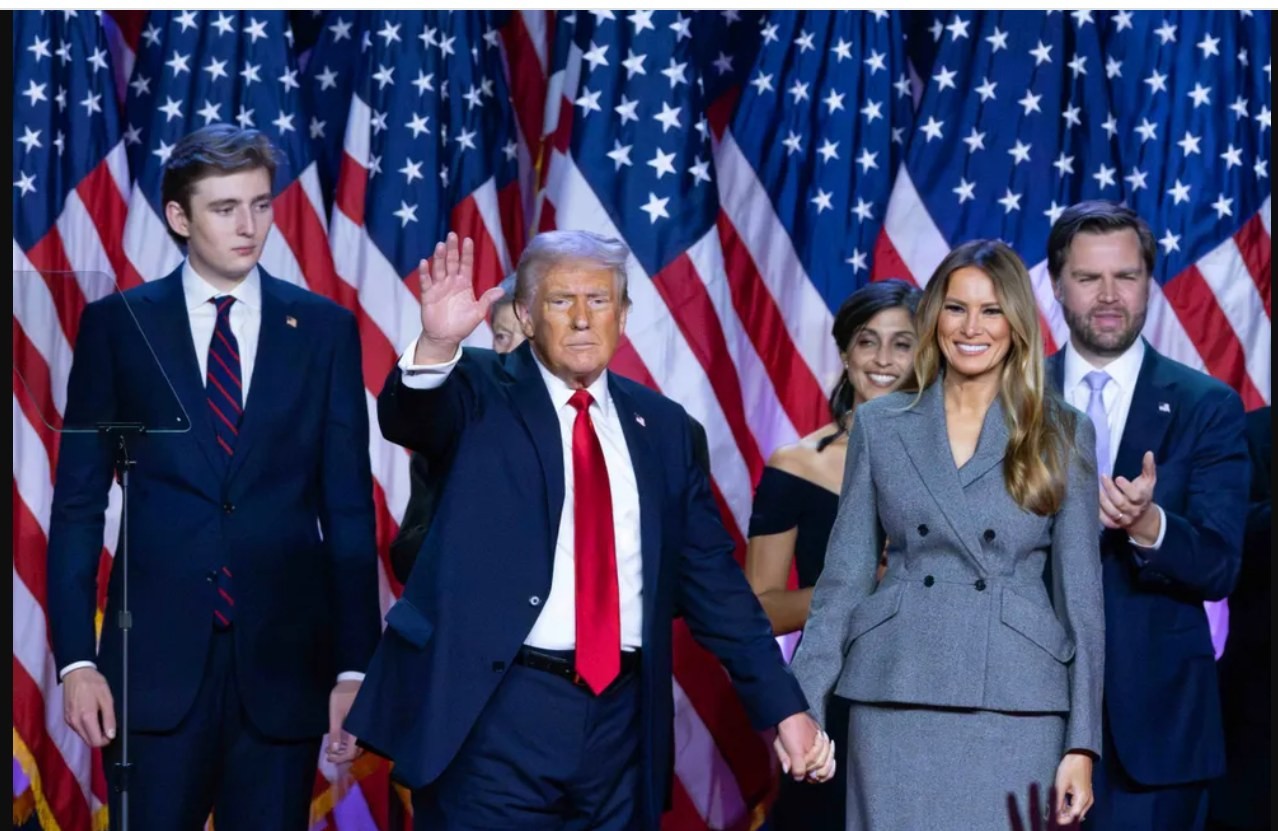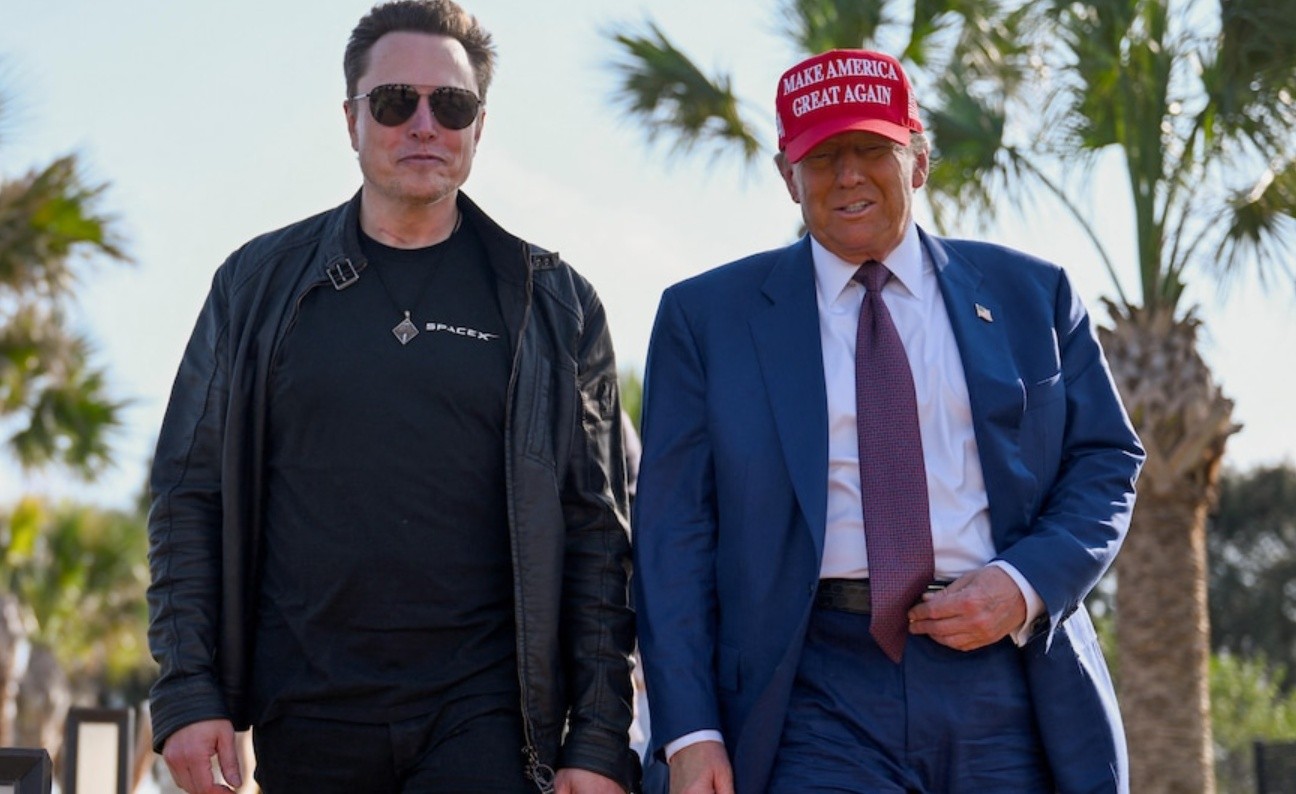Restrictive Voting Laws: What is it? Why is it uphold?
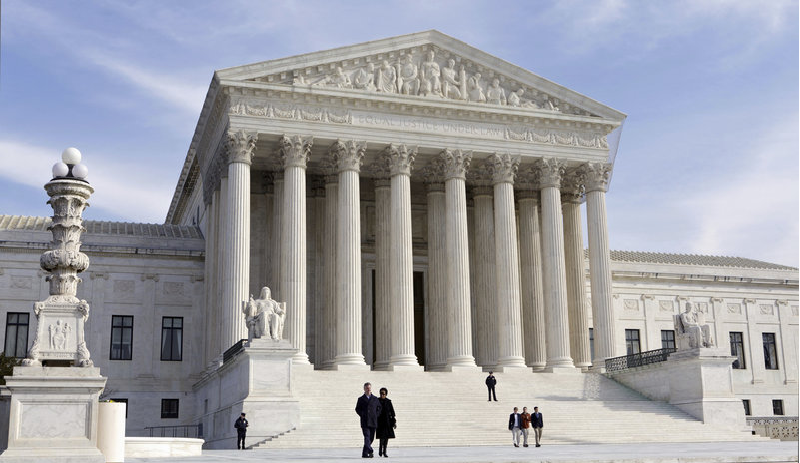 |
| The U.S. Supreme Court. Photo: NPR |
What is a “restrictive voting law”?
A “voting restriction” or a “restrictive voting law” is a law that makes it more difficult for people to vote. Typically, voting rights advocates who are against such laws are the ones who use this language. Those who support the types of laws that are at issue in the fight over voting rights would be more likely to simply call these “election laws.”, according to VOX.
The Brennan Center for Justice at New York University School of Law, a nonpartisan law and policy institute that seeks to improve our systems of democracy and justice, lists the following types of modern-day restrictive voting legislation:
- Identification laws (a category that includes laws that require photo identification for voting and laws that require proof of citizenship for voting).
- Laws that make voter registration harder by limiting mobilization efforts or reducing other registration opportunities
- Laws that reduce opportunities to vote early in person.
- Laws that make it harder for students to register and vote.
- Laws that reduce access to absentee ballots.
- Laws that limit protections for voter purges and increase the chance of wrongful removal of eligible voters.
Supreme Court Seems Ready To Uphold Restrictive Voting Laws
The U.S. Supreme Court seemed ready on Tuesday to uphold Arizona's restrictive voting laws, setting the stage for what happens in the coming months and years, as Republican-dominated state legislatures seek to make voting more difficult.
Since the November election, and President Trump's false claims that the balloting was rigged, Republican-run state legislatures have raced to pass new laws that would curb the modern-day expansion of the right to vote. Many of these laws likely will be challenged in court, and on Tuesday the Supreme Court heard arguments in a case that could set the parameters for which of those restrictive laws survive, and which don't.
The Voting Rights Act, first passed in 1965, makes it illegal for states to enact laws that result in voting discrimination based on race. Eight years ago, the conservative court, by a 5-to-4 vote, gutted one of the two major parts of the law. Now, it is the other major section that is in the conservative court's crosshairs.
Tuesday's case involved two Arizona laws. One bars the counting of provisional ballots cast in the wrong precinct. The other bars the collection of absentee ballots by anyone other than a family member or caregiver.
State Republicans and the Republican National Committee argued that both laws are needed to prevent fraud, but the Ninth Circuit Court of Appeals disagreed. It found no record of ballot fraud, but it did find evidence that the two laws make voting more difficult for minorities who often live in huge rural areas without a nearby post office or mail route, NPR reported.
Tuesday's Supreme Court argument focused on what standard the court should use to determine whether these laws, or others like them, result in unconstitutional discrimination against minority voters. And the justices' questions appeared to be plucked straight from the headlines.
Different Hypotheticals
Justice Elena Kagan, on the liberal side of the court, led off, quizzing Republican lawyer Michael Carvin with a series of hypotheticals that sounded very much like some of the laws proposed by the GOP since the November election, which Trump lost to Democrat Joe Biden.
Suppose, Kagan said, that "a state has long had two weeks of early voting and then the state decides that it's going to get rid of Sunday voting" during those two weeks, and suppose the evidence is that Black voters cast their ballots on Sunday 10 times more often than white voters. "Is that system equally open?" she asked.
"I think it would be," replied Carvin, because "Sunday is the day we traditionally close government offices."
Kagan clearly found that answer wanting, since, as she observed, states don't usually have Saturday hours either but they do for early voting, just as they have in the past for Sundays when Black voters often go to the polls from church.
Turning to another hypothetical, Kagan posited that a state says "we're going to have Election Day voting only, and it's going to be from 9 to 5. And there's plenty of evidence in the record that voters of one race are 10 times more likely to work a job that wouldn't allow them to vote during that time period. Is that system equally open?"
Carvin said it would seem to be.
Kagan persisted: "What about 9-to-3 or 10-to 4?"
"These are all hypotheticals that have never existed in the real world," Carvin protested. To that, Kagan replied, "It doesn't seem so fanciful to me."
Conservative Justice Samuel Alito had similarly tough questions for the other side. Suppose, he said, that a state has a two-week early voting period, and minority groups claim it should have been 60 days.
Lawyer Jessica Amunson, representing Arizona's Democratic Secretary of State, replied that such an expansion is not required by the Voting Rights Act. The Act looks with suspicion on a measure that cuts back on previous voting rights, but it doesn't require a broad expansion.
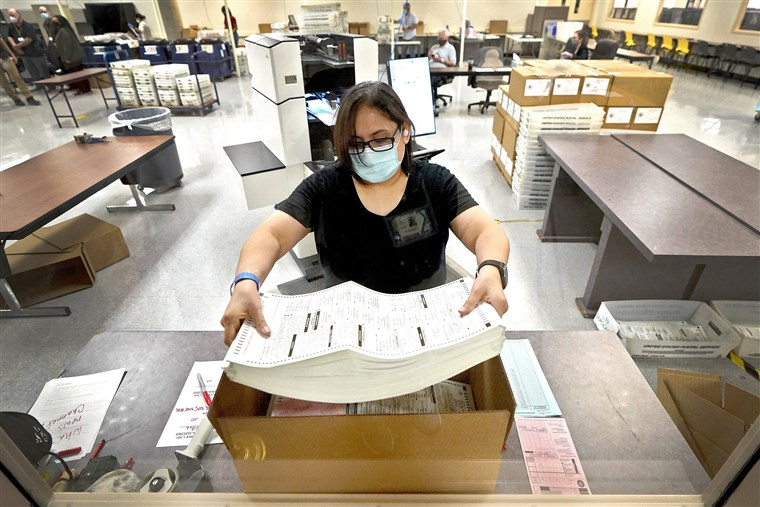 |
An election official counts ballots inside the Maricopa County Recorder's Office in Phoenix on Nov. 6, 2020.Matt York / AP file |
Alito followed up with a different hypothetical about how a ballot must be filled out.
"You have to ... fill in a little box to vote for a candidate," but some voters instead put a check mark next to the box, "and it can be shown that there's a statistical disparity with respect to voters who don't actually fill in the box but make a check mark" instead.
Amunson suggested that this hypothetical likely wouldn't wash either.
"You would have to show that this is, in fact, imposing a ... discriminatory burden on the minority voters" — a burden that it is not imposing on non-minority voters, she said.
Chief Justice John Roberts and several other conservative justices pointed to a 2005 report issued by former President Jimmy Carter and former Secretary of State James Baker that cited ballot collection as presenting a particular potential for fraud.
Amunson reiterated that there was no record of fraud in Arizona's absentee vote collection, but, she said, there is a record of racial animus by the legislators who introduced the bill to ban the practice.
Conservative group pushes proposals to tighten voting laws
As Donald Trump made false allegations about voting fraud and tried to overturn the will of the people in last year’s election, one of his chief allies was conspicuously silent. The Honest Elections Project, a leading advocate for more restrictive voting laws, stayed away from Trump’s doomed effort.
But now the group founded by conservative activist and informal Trump adviser Leonard Leo, is re-joining the debate with a new set of recommendations likely to guide GOP lawmakers as they overhaul voting systems. The suggestions range from ones that are likely to be embraced by Democrats and voting rights groups — allowing election offices to start processing mail ballots weeks before Election Day — to ones likely to spark fierce opposition, such as mandatory voter identification for both mail and in-person voting, and creation of a secure system that would link an absentee ballot to its voter.
The proposals come as the GOP remains divided by Trump’s false claims. Republicans are wrestling with how far to go in overhauling voting laws without embracing Trump’s conspiracy theories or damaging Republicans’ political prospects. Honest Elections’ push is essentially an establishment Republican answer to some of those questions, said the AP.
Last year, Honest Elections was part of the GOP legal strategy to fight voting changes, many of which were aimed at making voting easier during the pandemic. It sued Michigan, forcing the state to clean up its list of registered voters, and blocked a settlement easing absentee voting rules in Minnesota.
But the group, along with some other GOP legal and election policy experts, stayed away from Trump’s insistence the election had been stolen from him. Repeated audits and reviews turned up no significant-scale fraud in the election and Trump and his allies lost more than 50 court cases trying to prove it.
The false claim of fraud drove Trump’s supporters’ assault on the U.S. Capitol on Jan. 6. It’s still an animating force for the conservative movement, as shown by last week’s Conservative Political Action Conference in Florida, where Trump falsely claimed that illegal immigrants and dead people voted and the crowd chanted “You won!”
It’s also driven Republican-controlled states to increase barriers to voting. In Iowa, the legislature has voted to cut absentee and in-person early voting and prevent local elections officials from setting up additional locations to make early voting easier. In Georgia, the House on Monday voted for a law to require identification to vote by mail and allow counties to cancel early in-person voting on Sundays when many Black voters cast ballots after church.
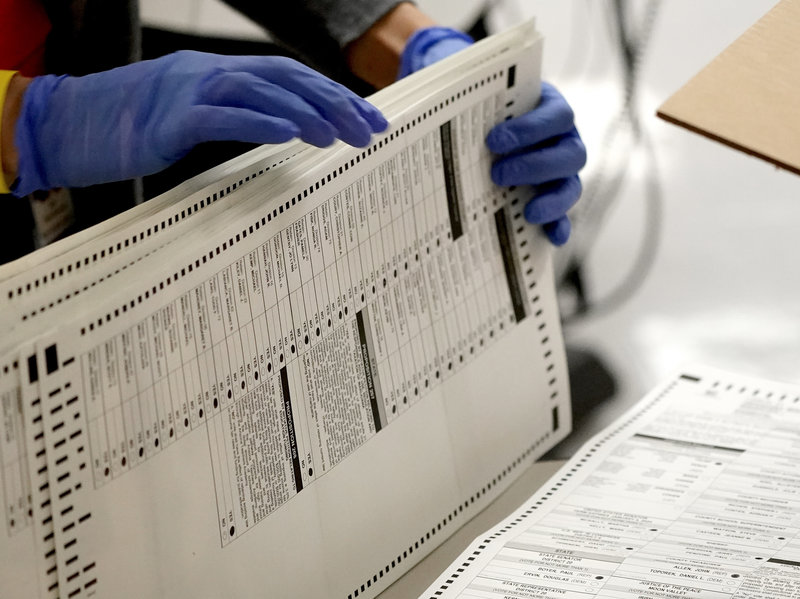 |
| Photo: NPR |
The battle over voting restrictions is playing out nationwide. Arizona Republicans are leading the way
The national battle over voting restrictions was, for one sluggish February afternoon, waged in a cramped hearing room of Arizona’s House of Representatives. Separated by plexiglass barriers, Republican lawmakers steadily plowed ahead on bills that, put together, could make it harder for Arizonans to vote.
Members of a House committee advanced a proposal to forbid the use of private money to help conduct elections, such as by buying equipment or funding voter education. They approved a bill making it a felony for an official to change any election-related date set in statute. They OKd a measure to preemptively forbid same-day voter registration, which the state does not currently offer.
Each bill was portrayed by its proponents as a commonsense housekeeping measure to guard against wrongdoing or even the perception of it. Voting rights advocates see a broader — and more damaging — agenda.
Similar scenes are playing out in statehouses across the country, with a barrage of voting restriction measures snaking through the legislative process.
Leading the way is Arizona, which has seen dozens of bills introduced this year, the most of any state, according to the Brennan Center for Justice, a think tank at New York University Law School.
One point of agreement across the political spectrum is that the state-level focus on voting procedures has reached unprecedented heights, with more than 165 bills nationwide to restrict voting, according to the Brennan Center analysis. Many also agree that this showdown is the inevitable result of last year’s presidential election, which Trump has falsely described as rife with fraud.
“If 2020 was the year that the Republican Party decided to try to use the courts to shut down voting rights, 2021 will be the one they are going to try to use the legislatures to do the same thing,” said Marc Elias, a Washington-based attorney who has become Democrats’ go-to elections lawyer.
The phenomenon spans time zones. In Georgia, for example, Republican lawmakers want to impose strict requirements for absentee voting and eliminate early voting on Sundays, curbing the “Souls to the Polls” initiatives popular with Black churchgoers. Iowa legislators are fast-tracking legislation that would shorten early voting periods and close polls one hour earlier on election day.
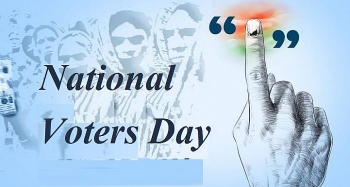 What is National Voters' Day: History, Importance And Celebrations What is National Voters' Day: History, Importance And Celebrations National Voters' Day is celebrated on January 25 every year. The significance of National Voters' Day is to encourage more young voters to take ... |
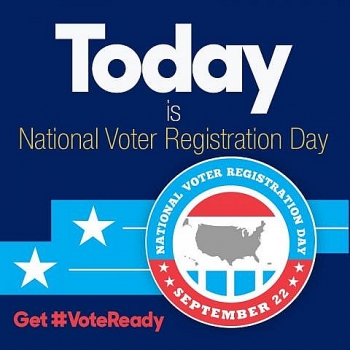 FACTS about National Voter Registration Day: History and Celebrations FACTS about National Voter Registration Day: History and Celebrations Curious about National Voter Registration Day? What is this day and what is the history of it? This article is just right for you to ... |
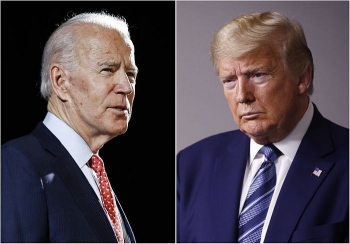 On January 6 - Key Date for Trump vs Biden: 140 House Republicans vote against and Wild Protests On January 6 - Key Date for Trump vs Biden: 140 House Republicans vote against and Wild Protests On January 6 - last chance for Trump vs Biden: At least 140 Republicans in the House of Representatives reportedly are expected to vote against ... |
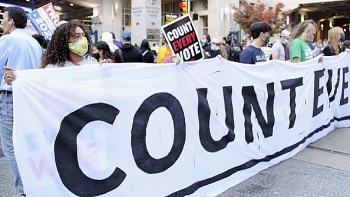 Chair of the Federal Election Commission Trey Trainor believes voter fraud is taking place - Newsmax Chair of the Federal Election Commission Trey Trainor believes voter fraud is taking place - Newsmax During a Friday appearance on Newsmax TV’s “National Report,” Chair of the Federal Election Commission Trey Trainor said locations not granting observers access to watch ... |
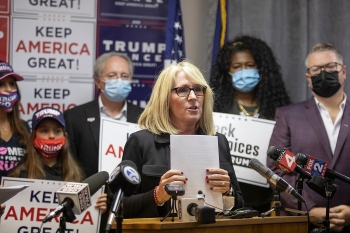 Dozens of Michigan Counties Used Software That Wrongfully Gave Votes to Democrats? Dozens of Michigan Counties Used Software That Wrongfully Gave Votes to Democrats? The Republican Party of Michigan held a press conference Friday afternoon and revealed six thousand Republican votes were calculated for Democrats after a software glitch. ... |

